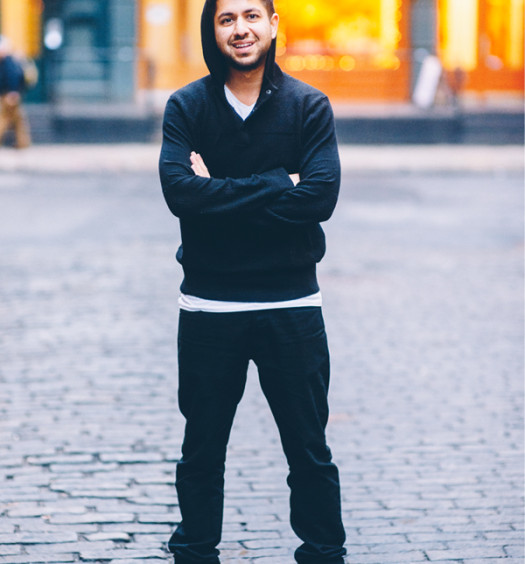Happy Givers -Extraordinary at Providing Emotional Support

Photo by Julie K
It was a brisk fall weekend in Brooklyn, and I’d joined a group of around 35 individuals at a cozy Fort Greene brownstone. We’d gathered to discuss the new wellness application ‘Happy.’ Some of us were already veterans to the app (despite it being in beta) while others were just learning about it for the first time. The attendees had come from all walks of life, with many residing outside of New York state. We spent the afternoon talking about our experiences with the app and how its mission resonated with each of us.
Happy allows for users to access emotional support – attention, compassion, and encouragement – on demand and over the phone. Happy connects callers with “Givers,” everyday people who have proven themselves to be exceptionally good at supporting others. Givers are rigorously vetted, and their quality is ensured through caller ratings. The app is confidential and safe with no identifying information given to callers or Happy Givers, so calls are completely anonymous.
Their business model is simple: callers pay $25/hour, which is pro-rated based on how long they talk. While Givers are paid for their time and get the benefits of flexible and meaningful part-time work, Happy provides live, genuine human connection (unlike most online competitors) and a non-stigmatized form of support. Happy’s pilot data has shown that 96% of callers reported feeling better after their call. Moreover, almost 90% of current Happy Givers are women, as Happy has positioned women to make a significant impact through meaningful employment while creating further opportunities.
Emotional support is a basic human need, yet research has shown that over 58 million Americans aren’t getting enough of it – as evidenced by the epidemic levels of stress and loneliness. Yet, the times when we need support, are often the most when it is least available. With Happy, people can call whenever they want and talk for however long they need.
From my experience, I’ve found that living in New York City is competitive in all aspects of life. Be it physically, mentally, socially or professionally, I believe it can be difficult to speak with colleagues and friends about my “feelings.” After trying Happy and talking with a Happy Giver, I felt a sense of peace. I was validated, not judged. Having a sounding board that was available when I needed it most was a breath of fresh air.
The future of behavioral health is cost-effective, on-demand, data-driven and community-based, and Happy achieves all of these while harnessing the power of genuine human connection to improve well-being.
FROM THE EDITOR
At Conscious, we are inspired by stories that cause us to think differently and think big-picture, and so we set out to tell stories with the help of leaders and influencers within the social good community. You can read more stories like this when you join as a member.



